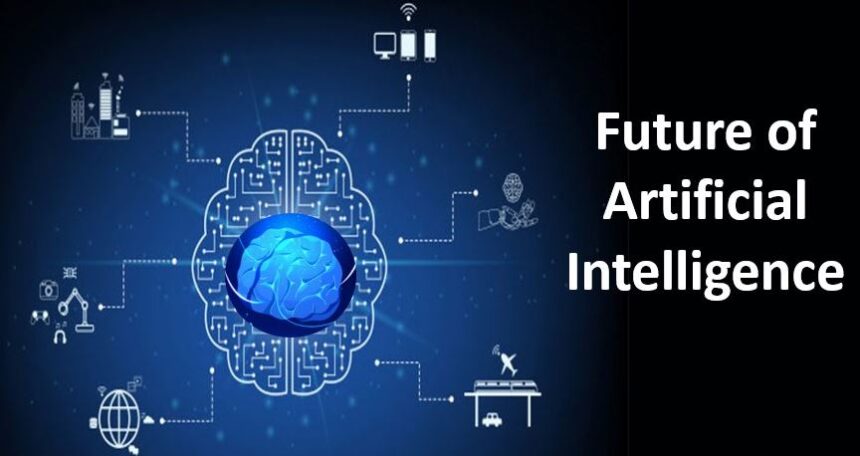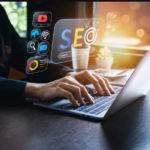Artificial Intelligence is no longer an element of science fiction; it is here and it’s changing the world in ways beyond our imagination. From health to creative industries, AI is gradually becoming an inseparable part of our lives. As 2025 approaches, improvements in AI are going to unlock new possibilities, opening up a world of exciting opportunities and significant challenges. The article below looks at some of the top AI trends to watch in 2025 and what each of those means for business and person alike.
1.Generative AI Becomes Even More Powerful
Generative AI, which has been in the headlines for its realistic images, text, and even music, has taken center stage in recent years. Tools such as GPT-4 and MidJourney are leading the charge, making it easier for users to create content with little effort. By 2025, these technologies will be more sophisticated, offering enhanced capabilities for industries ranging from advertising and entertainment to design.
Marketers could harness the power of generative AI for hyper-personalized communications to their audiences, artists, and designers relying on their tools that speedily provide visually stunning creations to make heads turn. It allows a new world of possibility with human-machine collaboration. Therefore, if you’re out scouting for AI tools, getting the best free AI image generator will open all these advancements in a relatively inexpensive way.
2.AI Ethics and Regulations Take Center Stage
As AI grows more pervasive, ethical concerns surrounding its use are becoming harder to ignore. Issues like bias in algorithms, misuse of AI for misinformation, and job displacement are sparking global debates. By 2025, we’ll likely see stricter regulations aimed at ensuring AI technologies are used responsibly.
Organizations will be required to make their AI systems transparent, explain their decision-making process, and ensure fairness. Governments and international bodies may also roll out frameworks that balance risks with the encouragement of innovation. Companies that will move early to adapt to these changes will be better placed to earn the trust of users.
3.AI-Powered Healthcare Breakthroughs
The healthcare sector is among the biggest beneficiaries of AI. From diagnosing diseases to streamlining administrative tasks, AI applications save lives and cut costs. Advancements in AI-powered drug discovery, robotic surgeries, and personalized medicine will redefine patient care by 2025.
For instance, AI can study a patient’s genetic background and lifestyle for highly personalized treatment suggestions. A chatbot enabled with NLP could be used as a mental health supporter-thereby taking therapy services to millions. These technologies might hold great promise, yet ensuring data privacy and a human touch would be big challenges.
4.Integration of AI into Everyday Devices
A combination of IoT and AI is making ordinary devices smart assistants. In 2025 and beyond, the integration of AI into more home appliances, wearables, and vehicles will further interlink our lives.
Consider fridges that can tell you what to cook because they know what is inside or wearables that measure your health and warn you in real time of anything going off track. In the future, you will probably see more AI-powered cars on the streets to make transportation safer and faster.
For businesses, this trend means developing products and services that are in tune with the growing demand for smart, interconnected devices.
5.AI and Creative Industries: A New Frontier
Now, creativity and AI intersect in some amazing ways. With so many fearing that AI would one day replace human creativity altogether, it would seem the two can coexist, actually even complement each other. In 2025, expect more AI tools to be made for creative professionals who help them push beyond what’s possible.
For instance, it allows writers to take up AI tools to brainstorm ideas for drafts, while an artist is allowed to try experiments using generative AI in developing astounding visuals. And as open resources like the best free AI image generator pop out, access to them, definitely, is more democratically distributed.
6.Workforce Transformation and Upskilling
With AI taking up more mundane tasks, a greater evolution will take center stage in the workforce itself: though some jobs become irrelevant, new ones will also start seeing daylight. Companies will increase the momentum of employee upskilling as the technology develops significantly around 2025.
Educational institutions will also have to adjust and provide specialized courses in AI and data science. Workers need to be one step ahead through lifelong learning, upgrading their skills to meet the changing job market.
7.AI in Climate Solutions
One of the world’s biggest challenges is tackling climate change, and AI is well on its way to helping solve it. By 2025, AI will be instrumental in developing sustainable solutions that range from the optimization of renewable energy systems to environmental change predictions.
For instance, AI models can analyze vast amounts of data to identify patterns in emissions and recommend strategies. Smart farming powered by AI will increase crop yields but at minimal environmental impact. As businesses and governments around the world increasingly adopt these innovative solutions, collaboration will be vital in scaling their impact.
8.Rise of Explainable AI (XAI)
The major barrier toward the adoption of AI is due to the “black box” problem, wherein the users do not understand how AI systems make decisions. Explainable AI, on the other hand, aims to solve this by providing clear insight into the inner workings of an AI model.
Until 2025, it will be a routine thing, with XAI playing in every application involving critical segments such as health, finance, and the judiciary system. This transformation is helping build trust, ensure accountability, and making AI accessible for non-technical users more feasible.
Conclusion
Artificial Intelligence of 2025: So Bright, yet So Challenging With its many great benefits, from the revolutionization of healthcare and creative fields to ethical concerns and helping with climate issues, the future of AI is promising to change our world at an ever-growing rate.
For individuals and businesses alike, this entails being up-to-date with such trends to reap the maximum benefits that artificial intelligence has in store for humans. From using the best free AI image generator available for creating unique imagery projects to harnessing the true power of AI in smarter decision-making, possibilities abound. Through this journey into transformation, collaboration, innovation, and ethics are what hold the key to unleashing full potential in AI.






